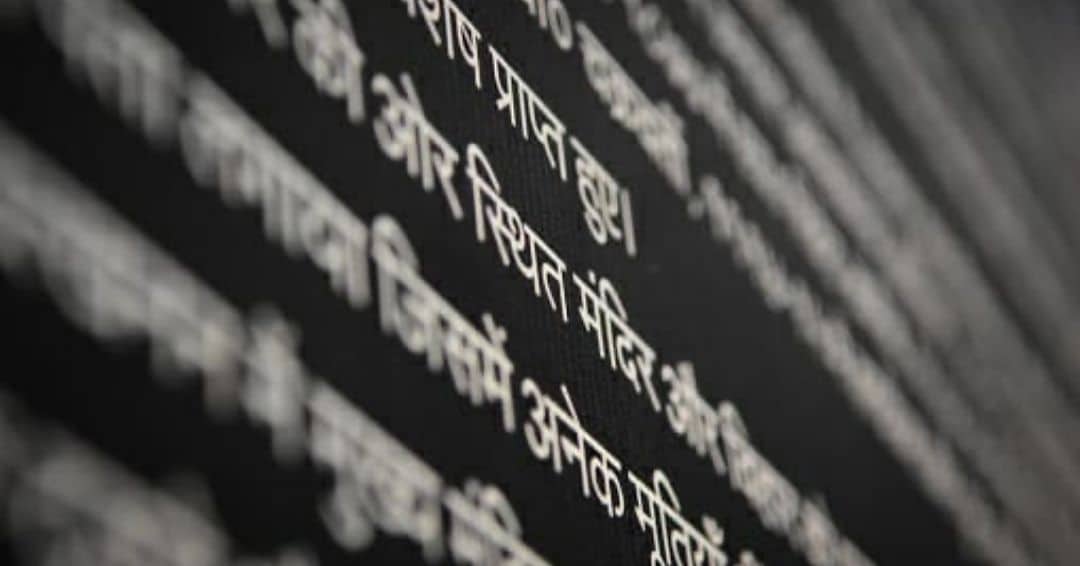Monkeys that cannot enjoy ginger – And other untranslatable Hindi Idioms and Phrases.
Hindi is a truly delightful language. Spoken by over 600 million people, it is the fourth most spoken language in the world.
The Hindi currently spoken in India is a mix of English, Urdu, and Sanskrit words, known as ‘Hindustani’. There are 100s of dialects of Hindi language is spoken in different towns and villages.
As the language with the maximum number of speakers in India, Hindi has idioms and phrases that are ‘very Indian’. There is no way to translate them into English without losing their meaning, essence, and emotion.

Are You Looking For Reliable Translation Services?
Milestone helps you seamlessly translate content & localize your website, products, and services for more reach, better conversions, and greater sales.
Translating Hindi Phrases
Considering the statistics, it is easy to understand why a lot of successful companies localize their business through language translation in India. And it’s not just businesses – books, poems, essays, you name it.
Translation gives people throughout the world – a chance to read and understand intercultural ideas and diversity. But like everything else, it also has its limitations.
Translation is more or less done literally. But when words start to mean something entirely different than their literal meanings, things may go very wrong. Most of the non-Hindi speakers also used language learning apps to learn Hindi

This is particularly true when you’re dealing with idioms. Sometimes, even native speakers end up scratching their heads when faced with a particularly archaic idiom.
Colloquially used and popularised by Bollywood, here are some Hindi phrases and idioms that are almost impossible to translate.
Also Read: Do These 10 English Words Have a Hindi Translation?
Untranslatable Hindi Idioms and Phrases
9211

(9,2,11? What does that mean? – Devanand from his popular movie ‘Nau do Gyaara’)
Let’s begin with a super simple example – 9,2,11. In Hindi, that would be ‘नौ दो ग्यारह – nau do gyaara’.
The three numbers hardly look like they make a philosophical idiom and turns out, it’s not. It simply means ‘to vanish’ or ‘run away’ from a certain place or situation.
Of course, there can be several English substitutes – head for the hills, make a getaway, show the heels, etc. But none of them perfectly captures the negative connotation behind the simple phrase.
Basically, in Hindi, a person that goes ‘nau do gyaara’ has previously been involved in something shady and ran away from the situation, the moment they could.
But what about the monkeys?

‘Bandar kya jaane adrak ka swaad’ or बंदर क्या जाने अदरक का स्वाद is another popular idiom.
If you’re looking for an intelligible English translation, it goes ‘What does a monkey know of ginger’s flavor?
At first, it doesn’t make a lot of sense. But if you contemplate it long enough – it is used to refer to a person who doesn’t have a taste for the finer things in life.
Often it is used rather bitterly, to criticize and question the taste of an individual that has previously rejected something that is seemingly precious or good.
Here’s the original interesting story to help you understand better:
Once upon a time, in a faraway jungle, a fox invited his friend – a monkey, to dinner. To impress his companion, the fox whips up a bunch of delicious dishes.
One of them was a small piece of marinated ginger, covered in lime juice and spices. Curious, the monkey decided to try the new dish. And voila! It tasted heavenly.
Determined, the monkey decided to make it on his own. First – he acquired the recipe from the fox and then, bought a huge block of ginger to recreate the lip-smacking taste.
Alas, the plan backfired. When the monkey consumed such a huge amount of ginger, his taste buds were burnt.
The moral? A monkey cannot appreciate the taste of finer things in life as he does not have the patience or skill for it.
The closest English substitute would be – ‘It is fruitless to cast pearls before swine.’
And the buffaloes?
The next Hindi idiom and Phrases with no proper translation are ’Bhains ke aage been bajana’ or भैंस के आगे बीन बजाना.
It’s super popular with the common public and every Indian has heard it at least once. The literal translation means ‘It is pointless to honk before a Buffalo’.
The origin of this idiom lies in the oblivious attitude of cows and buffalos when a vehicle horns at them to pass by.
The idiom is usually used to convey the futility of wasting effort on something/someone that wouldn’t listen or appreciate your involvement.
The closest English substitute would be ‘Crying in the wilderness’.
Also read: Hindi vs Urdu: What’s The Difference?
Connect With Your Customers In Their Native Language
Milestone helps you seamlessly translate content & localize your website, products, and services for more reach, better conversions, and greater sales.
A long way off

‘Delhi abhi duur hai.’or ‘दिल्ली अभी दूर है’
This idiom is particularly special to Indians. It doesn’t just capture the longing for success but also signifies the century-long history of this ancient city. The idiom can literally be translated into ‘For now, Delhi is far.’
The idiom means that the person referred to in the phrase needs to work harder and more efficiently before jumping to higher castles. The phrase is used as a reality check or a reminder that ‘there is still a long way to go’.
Dancing isn’t for everyone after all
नाच न जाने आँगन टेढ़ा or ‘Naach na jaane aangan tedha’ is our next idiom.
It is another popular saying that is used in Indian households quite regularly. The literal translation says ‘When you don’t know how to dance, the floor is twisted.’ I agree, it makes little sense.
The true meaning of the idiom lies in reference to a person who is not willing to acknowledge their inability/mistake and instead, burdens something else (even if it is incredulous) with the blame.
Here’s the gist – For a person who doesn’t know how to dance, the floor must be bent. I mean, who wants to accept that they suck at something? Certainly not most of us.
The closest English idiom is ‘a bad workman blames his tools’
Also read: Top 10 Translation Companies In Bangalore
Clapping with just one hand?

‘Ek haath se taali nahi bajti’ or ‘एक हाथ से ताली नहीं बजती’ is probably the best Indian defense.
Got in a fight? Scored fewer marks? Want to be the devil’s advocate? This is what you should say. The literal translation is ‘You cannot clap with one hand.’
The meaning or symbolic translation implies that the person using the phrase believes that the other party is also to blame for something that has gone wrong.
A mother defending her child, who was involved in a fight with some other children, by saying ‘Taali ek haath se nahi bajti’ implies that the other children must have also been at fault or had provoked the child.
The closest English idiom is ‘it takes two to tango’.
Wrapping up
The lingua franca of the Indian subcontinent has a certain charm to it. With the candour of Hindustani and the poetic rhythm of Old Urdu, Hindi language has much to offer.
You can also find several words with no English translation and make sure to avoid it. In case you decide to use the ones mentioned here, carefully select the closest substitute.
We can help you navigate the culturally rich and linguistically diverse country.
Contact us to translate and adapt your content in Hindi, Marathi, Kannada and 23 other languages.
Also read: Top 10 Translation Companies in India 2024
Connect with your customers in their native language
Milestone helps you seamlessly translate content & localize your website, products, and services for more reach, better conversions, and greater sales.




